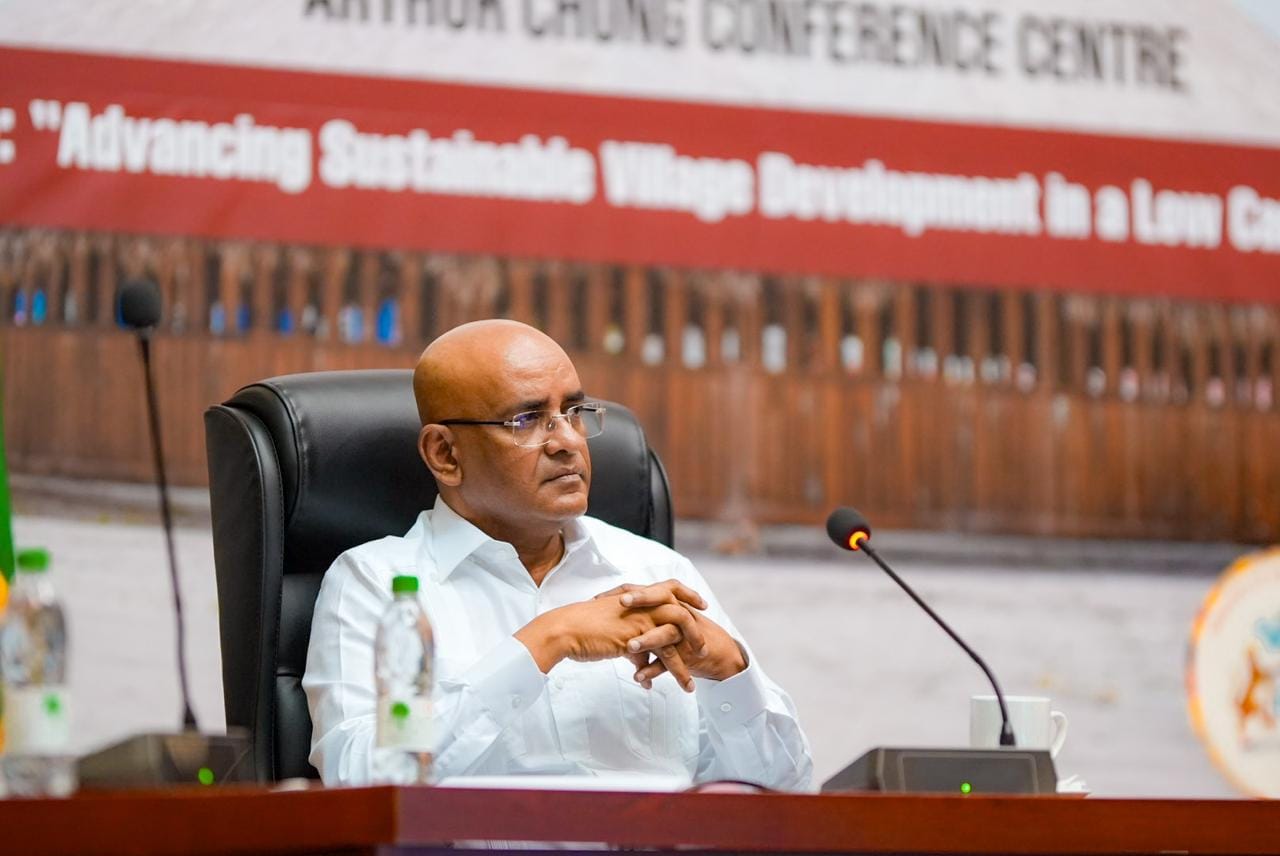Guyana’s Vice President Bharrat Jagdeo said on Thursday that the government does not intend to alter its new production sharing agreement (PSA) to suit ExxonMobil – the lone producer offshore. The new terms do not apply to the Stabroek Block PSA but will be in effect for all new production agreements.
The Vice President’s comments were in direct response to President of ExxonMobil Guyana Limited (EMGL), Alistair Routledge, stating that the company will not be signing the PSA “as is” because of issues with the punitive measures it contains.
“We are not going to weaken the PSA to suit ExxonMobil… If they do not want to sign it, fine,” was Jagdeo’s response at his weekly press conference on October 19.
Days prior at his own media briefing, Routledge cited the time periods and measures for relinquishment as matters of concern.
“Can you really in the deep water or even in the shallow water move that quickly to acquire [a] contract, acquire data, process data, and make decisions with extremely short periods, unusually short for offshore? So, we think that that’s challenging,” he explained.
Jagdeo said that the new PSA was drafted with international expertise to ensure the country’s fiscal regime for oil was on par globally. He said through the public consultation process, comments were submitted, and some were incorporated.
“If ExxonMobil…believe that we must take every one of their comments on our draft PSA and accept those comments fully, wholeheartedly, and then incorporate them in a new PSA, they need to think again,” Jagdeo stated.
Routledge also noted concern with the number of approvals needed in the new PSA, which he said the Ministry of Natural Resources does not currently have the capacity to handle.
“I don’t think the Ministry is set up to process, review and to exercise those… so, the balance between the approvals required for [a]different amount of oversight versus the expectation on the operator to go ahead and execute the work is in our mind, is a pretty big bump,” he added.
EMGL has no issues with the fiscal terms of the new PSA which has a 10% royalty rate, up from the 2% in the Stabroek PSA. The 75% cost recovery ceiling in the Stabroek PSA has been lowered to 65% in the new model contract. The sharing of profits after cost recovery will remain 50/50 between the government and the contractor. Additionally, a corporate tax of 10% will be instituted, where there was none before.
The new fiscal terms, Routledge explained, are normal since the basin has been derisked.
“When you then go to bid rounds later on having had discoveries in the basin, the basin becomes more attractive,” Routledge said. “So, it’s quite normal for the government to increase the fiscal take for it to be more favourable to the country…”
Industry analysts have put Guyana’s new fiscal terms on par with those of its peers in Latin America. An August 2023 report done by S&P Global showed that the Guyana basin remains attractive as an investment destination, even with the new terms.



